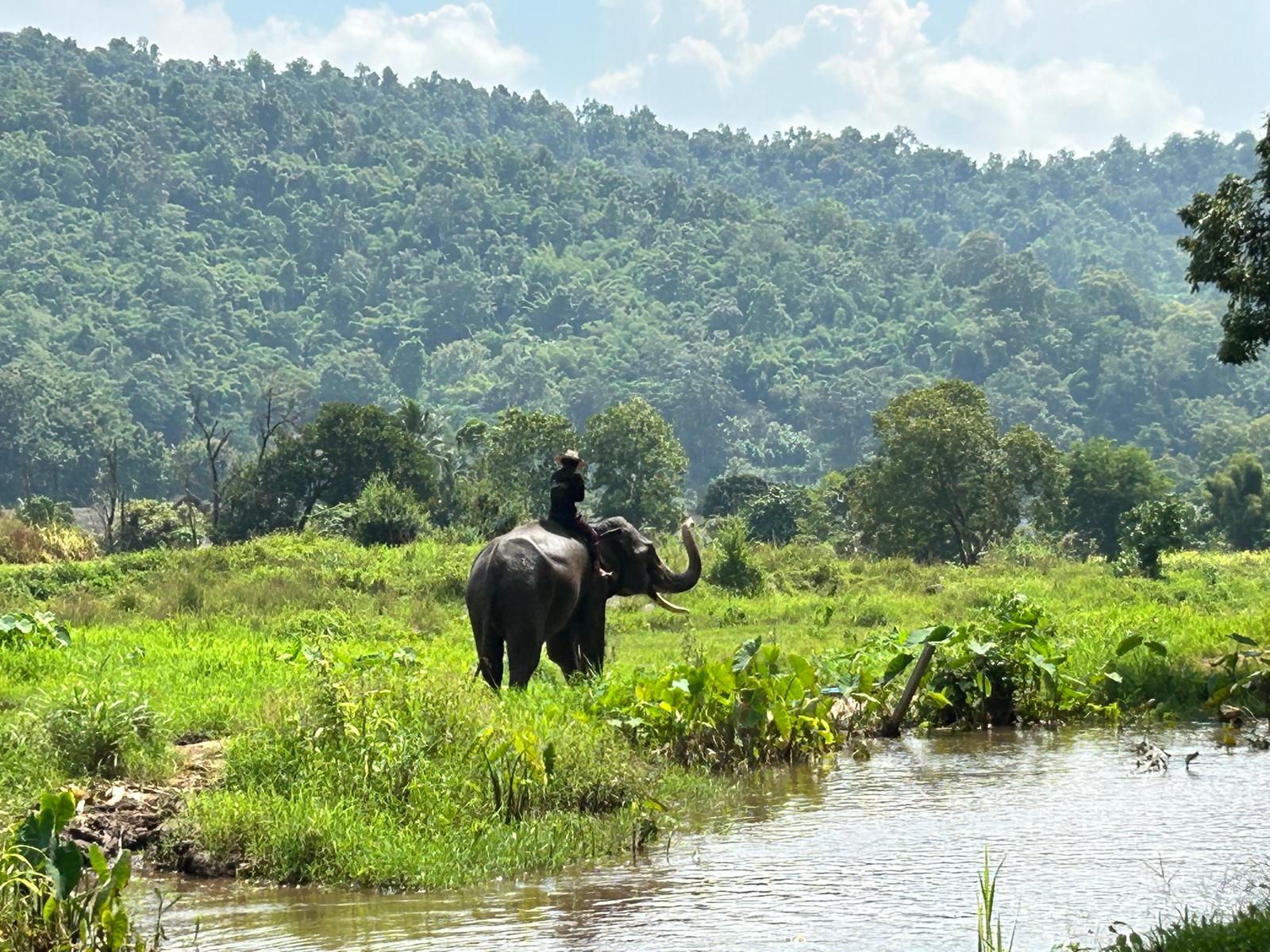
Last month, colleague Rhonda Reed (Global Coordinator for Health & Wellness) and I (Joyce Reed, Global Coordinator for Spiritual Care) traveled to Thailand to offer critical incident debriefing to our colleagues impacted by severe flooding in the cities of Chiang Rai and Chiang Mai. 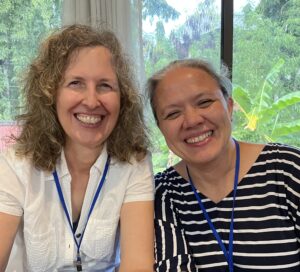
Four global servant families’ homes flooded. Three of our partners’ ministry headquarters flooded. And hundreds of local tribal people lost not only their homes, but also entire villages. Primary trauma (it happened to me) and secondary or vicarious trauma (it happened to someone I know) was experienced in all these situations.
As part of International Ministries’ member care team, Rhonda and I sat and listened to individual and family stories. When a person can debrief a trauma soon after it happens, then the ability to respond well to that trauma increases significantly. Otherwise, we tend to minimize and compartmentalize the physical, mental and emotional reactions to the event. Delayed responses to trauma can include depression, increased anxiety, flashbacks, and chronic fatigue. This is why the invitation to debrief sooner rather than later is a foundational step towards building resilience.
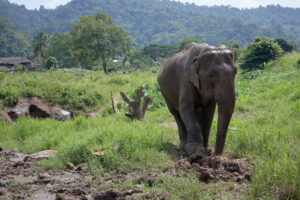
Because of the confidential nature of the stories we held, Rhonda and I cannot share specific examples of what we heard on this trip. However, we did have an experience in Thailand that provides a beautiful analogy for our ministry context. During our trip, our colleague Kit Ripley took us to visit an elephant refuge. These elephants have been rescued and rehabilitated from the logging industries, street begging, accidents, and landmine injuries that occur in neighboring countries. What can elephants help teach us about trauma resilience?
The Doilom Elephant Rescue Sanctuary presently houses three Asian elephants. The first thing we were invited to do is prepare food for them that was nutritious, regulated their digestive system, and provided vitamin supplements for overall health.
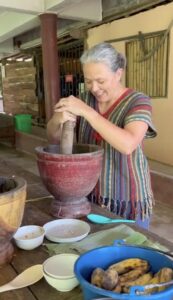
When ministering to someone who has just experienced trauma, asking “Are you eating? Are you staying hydrated? Are you sleeping?” become gentle reminders of how to return one’s body to a sense of safety and well-being. A person needs to regain a sense of safety before he/she can unpack the emotional response to a trauma.
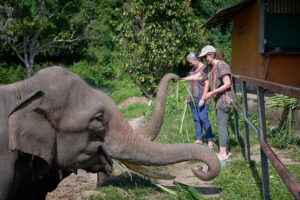
Elephants have excellent memories. They exhibit spatial memory to locate water sources and migration routes over vast distances. They have social memory to recognize and track up to 30 companions at a time. Olfactory memory is how they differentiate between familiar and unfamiliar individuals, and is used to maintain family bonds. Defensive memory allows them to respond to predators with skill and expertise. And drought memory gives them the ability to seek water sources in new areas. Their long-term memories aid not only in their survival, but also in their capacity for resilience.
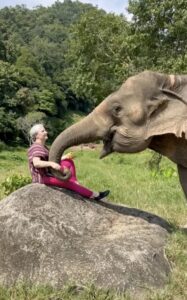
God designed and created human beings to operate at a much more sophisticated level than elephants! Yet, our brain’s response to trauma has some similar parallels. When threatened, we too access primal memories for how to respond in any given situation. Many of these memories are based in family of origin stories. What is our history of hardship, pain, suffering and trauma? We all have healthy and unhealthy responses to trauma as our bodies seek to regulate and to return to some state of normalcy.
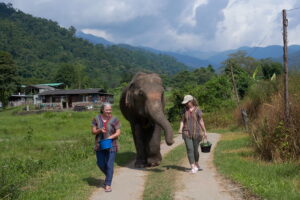
Research has proven that one of the most encouraging and stabilizing factors when we have experienced trauma is to have trusted companions come to walk beside us. When we know that we are not alone, that someone cares, that our story is safely held with no judgment or expectations, then our resilience is magnified. We are able to return to self-care and soul-care practices. We establish new neural pathways so that we can adapt and learn new responses to future trauma. We develop the ability to seek new sources of strength and healing.
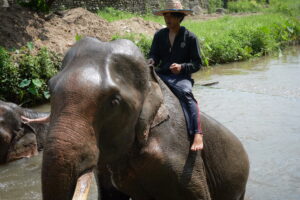
Elephants handlers or caregivers in Thailand are called Mahouts. They study the cultural, ecological, and behavioral knowledge of the elephant. Each mahout is assigned to one elephant for his/her lifetime. It is a skill that is usually passed down within tribal families. The mahouts we met were from the Karen hilltribe people. They feed, clean, bathe, treat minor medical ailments, and train the elephants. Their focus, especially in the refuge centers, is to promote the overall health and well-being of the elephant under their care.
The global coordinator positions that we hold are part of IM’s initiative to provide holistic well-being for global servants. The training and expertise we offer to our colleagues is not “one size fits all.” We contextualize our care to each situation. If follow-up care is needed, then we look first for in-country resources so that care is immediate and accessible. We also try, when possible, to offer care as a team. A team model provides accountability and integrity, and builds in safe guards to prevent harm.
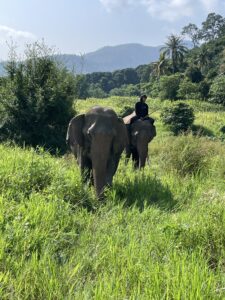
Golie Jansen, an associate professor at Eastern Washington University, concluded a study that discovered “When people perceive their organizations to be supportive, they experience lower levels of vicarious trauma.” (Lipsky, Trauma Stewardship, 2009, p. 21) This is the member care culture that IM is building through our roles.
Our day with the elephants ended in the water! There was splashing and playing as we all cooled off and enjoyed one another’s company. Resilience is built from a foundation of emotional security.
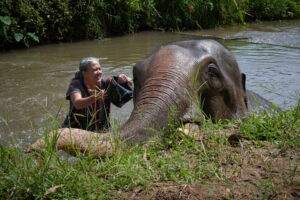
Dr. Jack Shonkoff, Professor of Child Health & Development at Harvard University, talks about the link between play & resilience: “Resilience is building the skills to be able to cope, building the skills to have strategies, to deal with your own reactions, be able to have some control over what’s going on around you. And none of that would develop as well as it does if you depended on just being taught how to be resilient. No. Your ability, your natural ability to play, is one of the most important strategies that we have developmentally to build resilience in the face of adversity.” (Podcast, “Building Resilience through Play,” The Brain Architects, https://developingchild.harvard.edu/resources/podcast-resilience-play/)
Setting aside intentional time to laugh, to be outside in God’s creation, to fellowship with community, and to rest allows our bodies to catch a breath, to breathe deeply again.
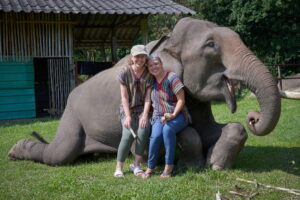
So many people covered us in prayer during our two weeks in Thailand. Thank you! Your financial gifts also provided the means for us to travel. We are humbled by your partnership, and by your faithful presence in our lives.
In Christ’s love,
Joyce Reed, Global Coordinator for Spiritual Care
Rhonda Reed, Global Coordinator for Mental Health & Wellness